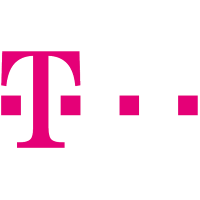Hier ein interessanter Artikel:
Financial Gateway to Asia
Issue No. 174, July 31, 2000
PACIFIC CENTURY CYBERWORKS
Pacific Century CyberWorks gained 4.1% last week even as the Nasdaq tanked 10.5%. Imagine what it'll do in a good week?!
We have been urging you not to sell your shares in Pacific
Century CyberWorks (1186 - Hong Kong; PCCLF - U.S. OTC) for
what now seems like an eternity.
Unlike all the naysayers who poured scorn on the company for months on end as it sought to close the deal to acquire Cable & Wireless HKT (8 - Hong Kong; HKT - NYSE), we believed from the outset that the deal made perfect sense for all parties concerned. PCCW, Cable & Wireless, C&W HKT, the Hong Kong public, and the governments of both the Hong Kong SAR and (behind the scenes) the People's Republic of China, all stand to get something out of this merger.
Well, now that the full legal ratification of the merger is
just 24 hours away, the doomsayers seem to have gone suddenly silent. Even the most stubborn pessimists appear willing to at least give Richard Li and the joint management team of the merged entity a chance to prove that they can create real value for shareholders out of this mega-merger.
We believe this honeymoon period, which is likely to last
several months, will set the scene for another strong rally in this stock.
4 reasons why Pacific Century CyberWorks' stock price is
poised to re-ignite
1)Sheer weight of money chasing shares in the company.
Following the impending legal ratification of the scheme of
agreement for Pacific Century CyberWorks to acquire Cable &
Wireless Hong Kong Telecom, the merged entity, Cyberworks HKT (??? -- the name has not yet been revealed) will be the
world's third-largest Internet company by market capitalization after Yahoo! and AOL - weighing in at almost
US$50 bn.
That makes CyberWorks-HKT a must-own proposition for fund
managers and individual investors alike, if they want exposure to the Internet in the whole Asian region in one easy-to-invest-in package that comprises about 8% of the benchmark Hang Seng Index in Hong Kong.
The weight of the money flow alone, as the big institutional investors jockey for position, should help put upward pressure on PCCW's stock price. And the effect will be all the more pronounced given that CyberWorks will not be issuing swathes of new stock in future like it did when it was in its hyper-growth phase amid the Internet frenzy in late 1999 and earlier this year. The smaller likelihood of future ownership dilution is viewed as a huge positive by the big institutional buyers.
We've already been seeing heavy trade in CyberWorks' shares
ahead of its Hang Seng Index inclusion (set for August 2), as well as in its warrants -- a type of security that entitles a holder to buy a proportionate amount of common shares at a pre-determined strike price in the future. In fact, trading in CyberWorks' 13 active warrants sometimes reaches nearly 20% of the entire Hong Kong market volume. (Many institutional investors use these derivatives to adjust their exposure).
Just recently, 3 investment banks successfully sold 6-month
covered warrants (meaning they already have the shares on hand to deliver against the warrants and no new shares will be issued to warrant holders should the warrants finish in the money) with an exercise price ranging from HK$19.48 to HK$19.61 per share. In other words, people out there are willing to buy PCCW shares for nearly 20% more than the current price of HK$16.35 after six months.
2)A new wave of bullish reports from the major investment
banks.
We have just seen two leading brokerage houses come out with extremely positive comments on PCCW. Lehman Brothers has set a near-term target of HK$22 for the stock, while Prudential-Bache (traditionally a more conservative investment house) slapped a HK$24 per share fair value on the company.
These bullish reports preceded CyberWorks' inclusion in the
Hang Seng Index. We think more brokerages will follow suit in the coming weeks.
3)Its operations are about to become a lot more pervasive and high profile.
Henceforth, PCCW will not just have a visionary concept, but actual products and services. This will give the company a more recognizable face among investors. And, in much the same way that a lot of people began investing in AOL and other U.S. Internet stocks when they began using their services, we expect a whole new wave of investor-interest in CyberWorks to stem from this.
The acquisition of HKT gives CyberWorks access to Hong Kong's biggest cable infrastructure, which covers nearly all households in the territory. CyberWorks will also immediately have access to a captive market consisting of HKT's 3.3 million existing fixed line telephony subscribers, 1 million wireless customers, 561,000 Internet users, 90,000 Interactive television subscribers and 77,000 broadband service customers.
Already, CyberWorks has made significant headway, signing
strategic agreements in the 2 biggest potential markets for
its interactive broadband service, China and India. In China, it has an agreement with Legend Holdings (another FGA company) to distribute content from its NOW channel, bundled along with Legend's PCs and Internet appliances. In India, meanwhile, CyberWorks has established a foothold by acquiring a stake in a local ISP.
But probably the most notable investment made by CyberWorks in the past few months was its 16% purchase of Tomen Mediacom, a subsidiary of Tomen Corp. in Japan, for US$13.7 mn on July 27. That investment established CyberWorks' presence smack-bang in the middle of Japan's cable TV industry, from where it will launch its NOW service in Asia's biggest existing Internet market.
Tomen Mediacom is Japan's second-largest Multiple System
Operator (MSO) next to Titus-Jupiter, and holds equity stakes in several leading CATV operators in the greater Tokyo area. Helped by the cash infusion from CyberWorks, Tomen Mediacom will soon expand its network to cover nearly 2 million homes within its service area -- and give CyberWorks immediate access to these homes.
4)Asset spin-offs, which will create a whole new
dimension of shareholder value.
Richard Li, the consummate deal-maker, and his aides have
already laid the groundwork for a series of high-profile spin-offs from the merged CyberWorks-HKT entity.
As we've reported before, CyberWorks has hammered out a deal under which HKT's wireless and IP-based infrastructure, spread throughout the Asia-Pacific region, will be combined with the regional assets of Australia's Telstra to create two separate, dominant companies in the fields of Internet backbone and mobile communications. Telstra will also be putting in cash of US$3 bn into these 2 joint venture companies.
The plan is for the two new companies to then be spun-off and listed separately on the Hong Kong Stock Exchange, and
probably on the NASDAQ too. The capital CyberWorks raises
from this will then be put to work to pay down debt, and to
fund the distribution of its Network of the World (NOW) in
Asia.
Given that there are at least 4 good reasons for CyberWorks' stock price to see a new run, it is perhaps worth noting again that CyberWorks is the kind of stock that, when it gets started, is very hard to stop from climbing. That's because, the higher its share price, the better a position the company is in for making deals and funding its expansion using its own stock as a powerful currency.
Keep your CyberWorks shares.
Financial Gateway to Asia
Issue No. 174, July 31, 2000
PACIFIC CENTURY CYBERWORKS
Pacific Century CyberWorks gained 4.1% last week even as the Nasdaq tanked 10.5%. Imagine what it'll do in a good week?!
We have been urging you not to sell your shares in Pacific
Century CyberWorks (1186 - Hong Kong; PCCLF - U.S. OTC) for
what now seems like an eternity.
Unlike all the naysayers who poured scorn on the company for months on end as it sought to close the deal to acquire Cable & Wireless HKT (8 - Hong Kong; HKT - NYSE), we believed from the outset that the deal made perfect sense for all parties concerned. PCCW, Cable & Wireless, C&W HKT, the Hong Kong public, and the governments of both the Hong Kong SAR and (behind the scenes) the People's Republic of China, all stand to get something out of this merger.
Well, now that the full legal ratification of the merger is
just 24 hours away, the doomsayers seem to have gone suddenly silent. Even the most stubborn pessimists appear willing to at least give Richard Li and the joint management team of the merged entity a chance to prove that they can create real value for shareholders out of this mega-merger.
We believe this honeymoon period, which is likely to last
several months, will set the scene for another strong rally in this stock.
4 reasons why Pacific Century CyberWorks' stock price is
poised to re-ignite
1)Sheer weight of money chasing shares in the company.
Following the impending legal ratification of the scheme of
agreement for Pacific Century CyberWorks to acquire Cable &
Wireless Hong Kong Telecom, the merged entity, Cyberworks HKT (??? -- the name has not yet been revealed) will be the
world's third-largest Internet company by market capitalization after Yahoo! and AOL - weighing in at almost
US$50 bn.
That makes CyberWorks-HKT a must-own proposition for fund
managers and individual investors alike, if they want exposure to the Internet in the whole Asian region in one easy-to-invest-in package that comprises about 8% of the benchmark Hang Seng Index in Hong Kong.
The weight of the money flow alone, as the big institutional investors jockey for position, should help put upward pressure on PCCW's stock price. And the effect will be all the more pronounced given that CyberWorks will not be issuing swathes of new stock in future like it did when it was in its hyper-growth phase amid the Internet frenzy in late 1999 and earlier this year. The smaller likelihood of future ownership dilution is viewed as a huge positive by the big institutional buyers.
We've already been seeing heavy trade in CyberWorks' shares
ahead of its Hang Seng Index inclusion (set for August 2), as well as in its warrants -- a type of security that entitles a holder to buy a proportionate amount of common shares at a pre-determined strike price in the future. In fact, trading in CyberWorks' 13 active warrants sometimes reaches nearly 20% of the entire Hong Kong market volume. (Many institutional investors use these derivatives to adjust their exposure).
Just recently, 3 investment banks successfully sold 6-month
covered warrants (meaning they already have the shares on hand to deliver against the warrants and no new shares will be issued to warrant holders should the warrants finish in the money) with an exercise price ranging from HK$19.48 to HK$19.61 per share. In other words, people out there are willing to buy PCCW shares for nearly 20% more than the current price of HK$16.35 after six months.
2)A new wave of bullish reports from the major investment
banks.
We have just seen two leading brokerage houses come out with extremely positive comments on PCCW. Lehman Brothers has set a near-term target of HK$22 for the stock, while Prudential-Bache (traditionally a more conservative investment house) slapped a HK$24 per share fair value on the company.
These bullish reports preceded CyberWorks' inclusion in the
Hang Seng Index. We think more brokerages will follow suit in the coming weeks.
3)Its operations are about to become a lot more pervasive and high profile.
Henceforth, PCCW will not just have a visionary concept, but actual products and services. This will give the company a more recognizable face among investors. And, in much the same way that a lot of people began investing in AOL and other U.S. Internet stocks when they began using their services, we expect a whole new wave of investor-interest in CyberWorks to stem from this.
The acquisition of HKT gives CyberWorks access to Hong Kong's biggest cable infrastructure, which covers nearly all households in the territory. CyberWorks will also immediately have access to a captive market consisting of HKT's 3.3 million existing fixed line telephony subscribers, 1 million wireless customers, 561,000 Internet users, 90,000 Interactive television subscribers and 77,000 broadband service customers.
Already, CyberWorks has made significant headway, signing
strategic agreements in the 2 biggest potential markets for
its interactive broadband service, China and India. In China, it has an agreement with Legend Holdings (another FGA company) to distribute content from its NOW channel, bundled along with Legend's PCs and Internet appliances. In India, meanwhile, CyberWorks has established a foothold by acquiring a stake in a local ISP.
But probably the most notable investment made by CyberWorks in the past few months was its 16% purchase of Tomen Mediacom, a subsidiary of Tomen Corp. in Japan, for US$13.7 mn on July 27. That investment established CyberWorks' presence smack-bang in the middle of Japan's cable TV industry, from where it will launch its NOW service in Asia's biggest existing Internet market.
Tomen Mediacom is Japan's second-largest Multiple System
Operator (MSO) next to Titus-Jupiter, and holds equity stakes in several leading CATV operators in the greater Tokyo area. Helped by the cash infusion from CyberWorks, Tomen Mediacom will soon expand its network to cover nearly 2 million homes within its service area -- and give CyberWorks immediate access to these homes.
4)Asset spin-offs, which will create a whole new
dimension of shareholder value.
Richard Li, the consummate deal-maker, and his aides have
already laid the groundwork for a series of high-profile spin-offs from the merged CyberWorks-HKT entity.
As we've reported before, CyberWorks has hammered out a deal under which HKT's wireless and IP-based infrastructure, spread throughout the Asia-Pacific region, will be combined with the regional assets of Australia's Telstra to create two separate, dominant companies in the fields of Internet backbone and mobile communications. Telstra will also be putting in cash of US$3 bn into these 2 joint venture companies.
The plan is for the two new companies to then be spun-off and listed separately on the Hong Kong Stock Exchange, and
probably on the NASDAQ too. The capital CyberWorks raises
from this will then be put to work to pay down debt, and to
fund the distribution of its Network of the World (NOW) in
Asia.
Given that there are at least 4 good reasons for CyberWorks' stock price to see a new run, it is perhaps worth noting again that CyberWorks is the kind of stock that, when it gets started, is very hard to stop from climbing. That's because, the higher its share price, the better a position the company is in for making deals and funding its expansion using its own stock as a powerful currency.
Keep your CyberWorks shares.
 Werbung
Werbung



















